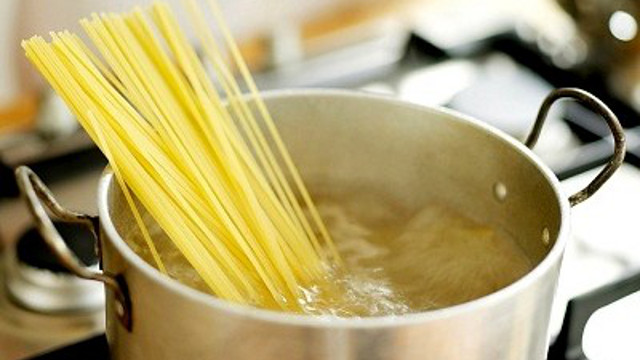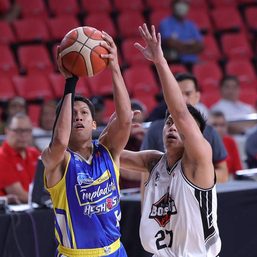SUMMARY
This is AI generated summarization, which may have errors. For context, always refer to the full article.

[See original image here.]
MANILA, Philippines – We’ve grown up with many “secret” tips to cooking, shared by a friend, a kitchen-loving family member or a well-consulted cook book. But which of these really work? Before you whip up your apron, here are some kitchen myths from Oprah.com that have long been overcooked.
Myth 1: Red wine and fish don’t go together
Wine connoisseurs are familiar with the oft-said caution that red wine tastes bitter and metallic when sipped alongside seafood meals. This is because red wine contains tannins, an organic substance from grape skin and seeds that taste bitter. Tannic reds like cabernet and merlot react with fish oil, explaining the unpleasant taste. In contrast, red meat like beef and lamb soften tannins and give a fruity, smooth taste to red wine. But not all red wine and fish match-ups are forbidden.
Tip: The trick is to choose your combinations well. Lighter red wines like Beaujolais and Pinot noir are excellent with fish.
Myth 2: Hot food should be aired to cool down completely before refrigeration
The immediate course of action after an entire pot of steaming hot soup is left over from dinner is to leave it on the table or counter to cool down before placing it inside the refrigerator for another meal. To quicken the process, people take the lid off to let the steam out. But this may not be the best short cut since microorganisms that cause foodborne disease multiply in temperatures between 40 degrees and 140 degrees Celsius. They can easily germinate in your soup and destroy the next meal—not to mention your health.
Tip: Divide the hot food into multiple smaller containers to help it cool faster.
Myth 3: Baking powder only lasts 6 months
Baking powder and other leavening agents do half a shelf-life but not all of them are garbage after 6 months.
Tip: To check if you can still use your baking powder, just sprinkle a spoonful into a cup of warm water. If it makes the water bubble, it’s fine to use.
Myth 4: Put oil in cooking pasta to stop noodles from sticking
It’s common practice to pour a bit of oil into pasta noodles while they are softening under water to keep the noodles nice and separate the entire time. But you may just be wasting your oil. Chances are, unless you massage each noodle strip with oil, oil in pasta water won’t really help.
Tip: The good news is, there is no need to keep noodles separated while they are softening under hot water. You just need to stir occasionally and make sure you added enough water. One tip that does tend to work and is unrelated to sticky noodles is to add salt to the water for seasoning the pasta. After draining them, mix the noodles in olive oil. That’s when you can solve the sticky noodles problem.
Myth 5: Don’t use soap when washing hard iron
The general rules when it comes to hard iron pans is to not put them in the dishwasher, not to let them air-dry lest they rust and to keep it away from soap. While the first two rules are true, the third is not necessarily so. If a pan has enough oil from cooking, washing it with soap will do no harm. The oil on the pan will be enough to keep the cleaner from harmfully penetrating the metal.
Tip: Use kosher salt to rub off sticky scraps on the pan then reheat the pan in an oven and rub with oil before storing.
Do you have your own cooking tips? Share them with us! – Rappler.com
Add a comment
How does this make you feel?





There are no comments yet. Add your comment to start the conversation.